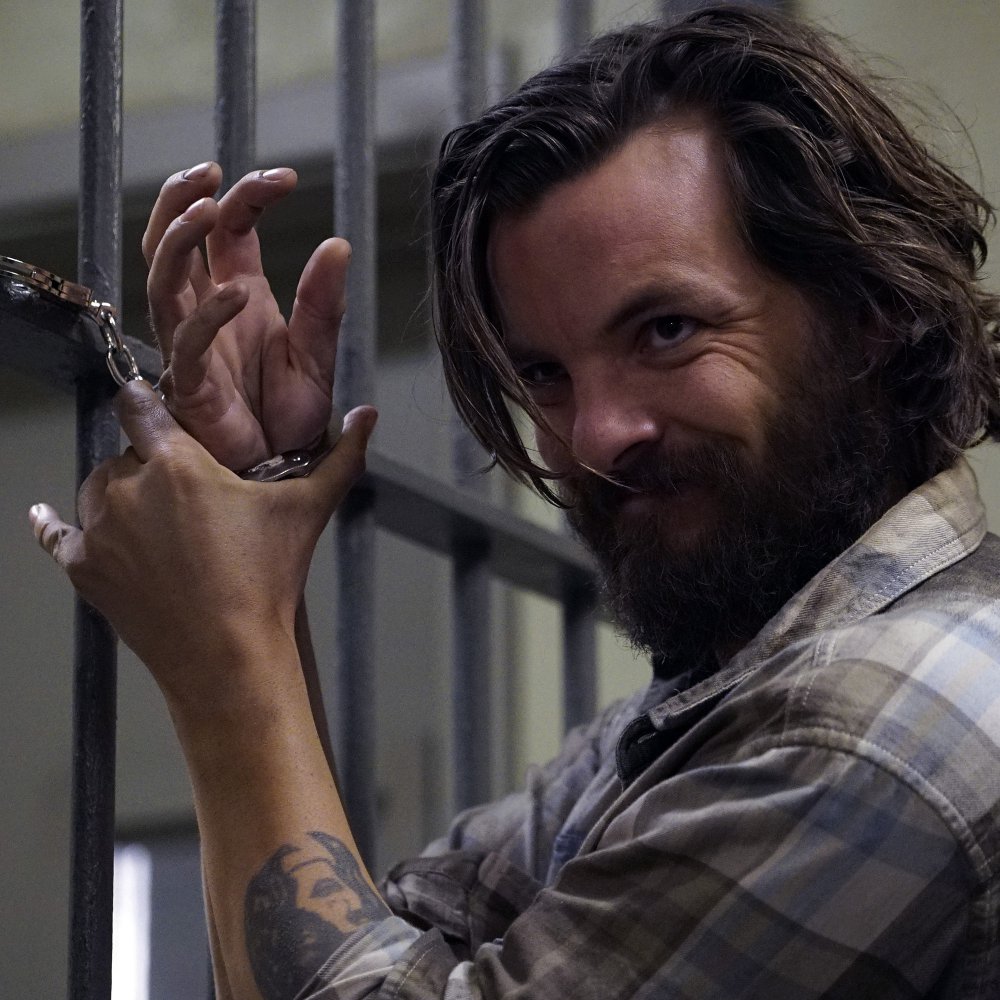Three girls, hand in hand, singing in chorus, as if they were going to a hippie festivity. This image symbolizes the explosive mixture of absolute horror and perverse candor of the Manson affair. We are in 1970, and America begins to judge, in California, the little band that sowed terror, incredulity and, ultimately, the death of the sweet sixties.
On the night of August 9, 1969, eight-month-old actress Sharon Tate, married to Roman Polanski, was massacred at her home in Los Angeles with four other people. The next night, while the macabre scene is tetanizing the world, a well-to-do couple, Leno and Rosemary LaBianca, is tricked in the same wild way. Among the reasons: to endorse these crimes by the Black Panther Party and to trigger an interracial war that would leave a new world led by Charles Manson. Two works, one French, the other American, to appear these days, try to shed new light on the largely feminine aspect of the news item.
Fascinated and terrorized
Indeed, if the psychopathic guru orders the two killings, among the five armed arms that execute his orders there is only one man, Tex Watson. The rest of
the wild equip? Four women devoted body and soul to the one who paints himself in new Christ come to change the world using the methods of the devil. Their names: Susan Atkins, Leslie Van Houten and Patricia Krenwinkel, plus Linda Kasabian, who preferred to wait in the car. Among the female members of the "family", Lynette Fromme (who attempted to kill President Gerald Ford in 1975), Jane Lake, Catherine Share, Cathy Gillies, Sandy Good ...
As its title implies, California girls (1), Simon Liberati's "true novel" focuses solely on the "daughters" of Manson. Girls at once fascinated, hypnotized, loving for some, and terrorized by the physical and mental violence of their guru. Susan, Leslie, Patricia, Linda, Lynette and the others are constantly fucked, fucked by the "master" without having a say, dispossessed of everything, gradually turning into disturbing zombies. The flowers in the hair faded, and the precepts of love and peace gave way to a hateful logorrhoea against the "pigs" of decadent bourgeois destined to be eliminated.
Surgical accuracy
Simon Liberati describes this slow and inexorable moult by focusing on the two nights when the girls became monsters. As he explains: "To succeed in killing with a penknife by taking it over again many times, must nevertheless do it. It is true that the novelist relates the murders with details on the edge of the sustainable. "What fascinates so much, almost fifty years later, beyond the horror of crimes, is the fact that a large part of the protagonists were women, adds the writer. On the one hand, the sublime beauty, under the guise of Sharon Tate, who is about to give birth, and on the other, young girls, some good families, absolutely not intended to torture and trick , and for a long time devoid of remorse. They were not only completely barred by drugs but also lobotomized by Manson's speech. "
The young Californian Emma Cline, quasi-look-alike Linda Kasabian at the same age, is very successful with her first novel, published in thirty countries. The girls (2) features a young girl who is confronted with family chaos and who finds herself involved in the Manson affair. Evie Boyd, her character, borrows from the different feminine characters of the "family" both psychological and biographical traits.

Book The Girls - editions La Table Ronde
But where Simon Liberati remained in the clinical register of the autopsy of the murders, Emma Cline chooses the most complete fictional imagination to describe the inner journey of one of these "girls". "For me, Charles Manson does not belong to the past, explains Emma Cline, interviewed by e-mail about her motivations. He remains very present, especially in the Californian atmosphere, especially since I grew up in the Marin County, not far from San Quentin prison, where he was then locked up. With my sister, I very young shared a passion for sects and California in the sixties. We read and reread The Hollywood Slaughter (3), the book co-written, in 1974, by the prosecutor of the case Manson, as well as the memories of the former members of the sect. "
Feminine ferocity
Little by little, Emma Cline becomes obsessed with the women of the gang, not understanding why they often appear only in footnotes, relegated to the rank of extras. "It is this need to put myself in their place that gave birth to my novel. "This one seeks to clarify this question: why do we always refuse the idea that girls can be responsible for monstrous acts? No doubt because it undermines a multi-thousand-year vision of so-called "weak" sex, incapable of behaving like the so-called "strong" sex.
"There is always a tendency to think," enlightened the essayist Cécile Guilbert, "that savagery and barbarism are the prerogative of men. An irenic view of the gender distribution would suggest that women have more control over their impulses. It seems to me that women go against their supposed softness when taken in a sectarian logic, because they are more accessible to irrational beliefs. This great feminine ferocity that suddenly appeared remains a puzzle for the most part, but this is not new. Consider the "Knitters" of the
French Revolution, enjoying the sanguinary spectacle of cut heads. Perhaps one day it would be necessary to seriously investigate a dimension of resentment buried in women and which arises at times. "An enigma that also continues to fascinate Hollywood. Last February, the Manson's Lost Girls TV movie, devoted to the cult's female followers, was aired on Lifetime. NBC plans the second season of the Aquarius series, featuring a detective investigating the affair. Two feature films are being prepared on the life of Charles Manson, who, from his prison, continues to provoke the unconditional love of admirers. And the girls " ? Linda Kasabian, who has not been incarcerated for testifying against her friends, lives somewhere in the United States and no longer wants to talk about the case.
Susan Atkins died of cancer in 2009, without obtaining the right to die with her family. Leslie Van Houten and Patricia Krenwinkel, who have been detained as models, have until now been refused parole.


